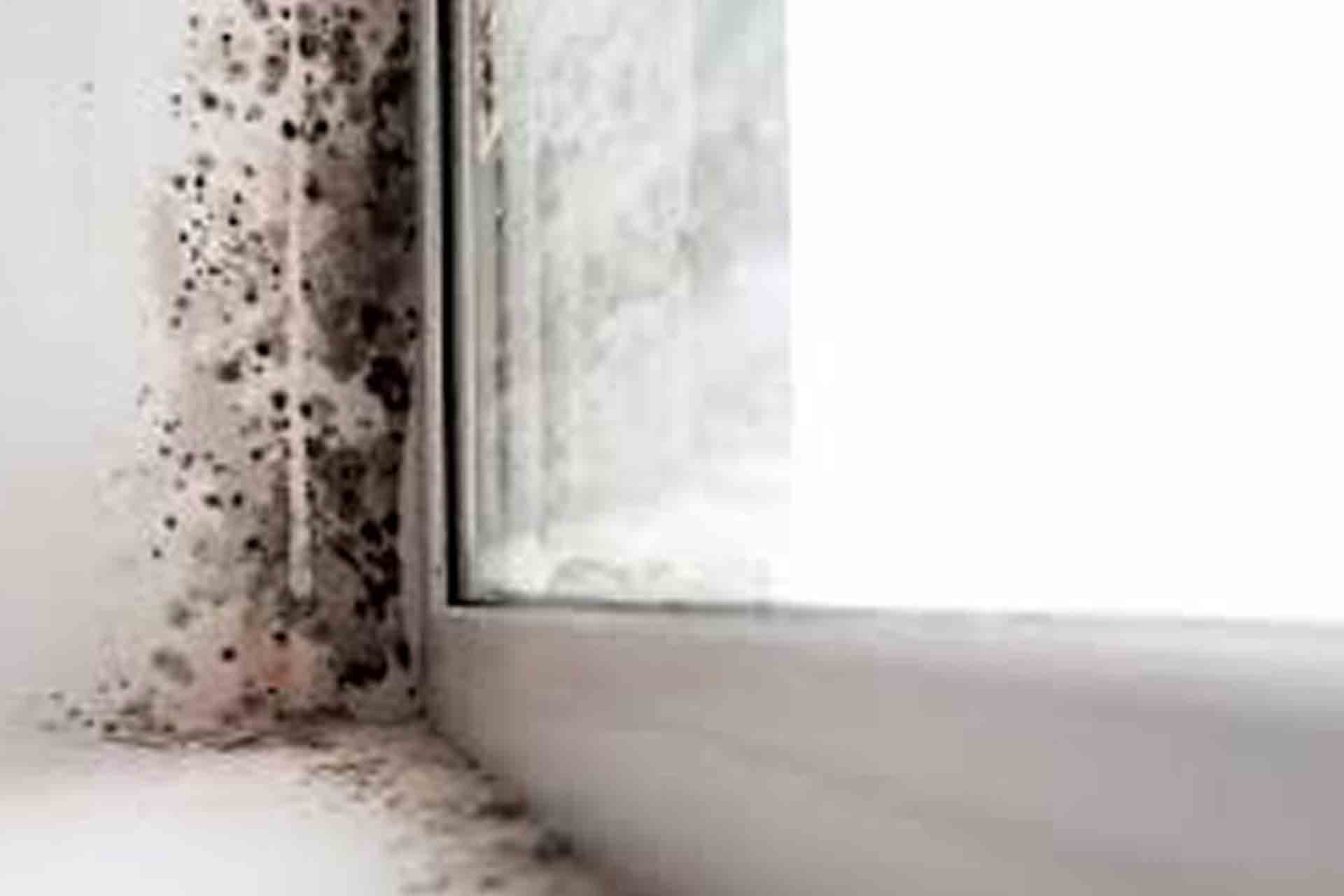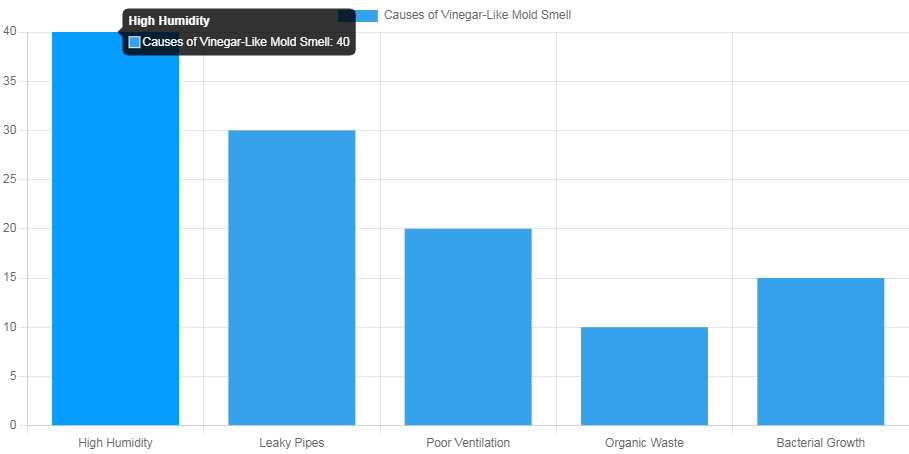
If you ever feel a strong, tangy odor similar to vinegar in your home, you might wonder: What mold smells like vinegar? This different smell you suffer from is usually a sign of mold growth, especially in damp and poorly ventilated areas. Furthermore, once you understand this issue then you can address this problem quickly and help prevent health risks and property damage.
In this article, we’ll explore why mold emits a vinegar-like smell, where it commonly grows, its potential dangers, and how to eliminate it effectively.
Why Does Mold Smell Like Vinegar?
Generally, mold breaks down organic materials (such as wood, fabric, and drywall) for nourishment and grows. As a result, these things that mold uses to grow to release tiny gas compounds known as microbial volatile organic compounds (mVOCs).
Furthermore, you can often detect the (mVOCs) by their strong, musty odor. These mVOCs mix into the air and some can be harmful to health, potentially causing headaches, allergies, or respiratory issues.
These compounds produce a tangy, acidic, or sour odor due to that they resemble the smell of vinegar or pickles. The primary reasons for this odor include:
- Mold metabolism: As mold breaks down organic material, it produces byproducts with strong odors.
- High humidity: The environments that are moist encourage mold growth, leading to the release of smelly compounds.
- Deteriorating materials: Mold growing on drywall, wood, or insulation can contribute to the vinegar-like smell.
Common Places Where Mold Smells Like Vinegar
Mold can develop anywhere moisture is present, but certain locations are more prone to emitting this specific smell:
1. What Mold Smells Like Vinegar in the House
Mold spreads especially in moist environments such as water damage, poor ventilation, or high humidity. Therefore, check for mold in the home:
- Bathrooms: you will find mold around sinks, showers, and under cabinets
- Basements: due to leaks or high moisture levels
- Kitchens: mold attacks often near dishwashers, under sinks, and behind refrigerators
- Laundry rooms: behind washers and dryers
Learn more about: bathroom mold prevention
2. What Mold Smells Like Vinegar in Walls
You are feeling a vinegar-type smell but can’t see mold, it might be growing inside the walls. This happens when moisture gets trapped behind drywall due to:
- Leaky pipes
- Poor insulation
- Roof leaks
- High indoor humidity
3. What Mold Smells Like Vinegar Outside
The smell of mold growth outdoors is similar to vinegar, especially in damp areas like:
- Under decks or patios
- Around air conditioning units
- On wooden fences or siding
- Near clogged gutters
4. What Mold Smells Like Vinegar in the Bathroom
Bathrooms are a prime location for mold due to high humidity. You may detect the odor near:
- Shower grout and tiles
- Sink areas
- Behind toilets
- Inside ventilation ducts

Pie Chart Showing Common Places Where Mold Smells Like Vinegar
Is a Vinegar Smell in the House Dangerous?
If you are suffering from a persistent vinegar-like smell in your home could indicate mold, bacteria, or chemical off-gassing. Potential dangers include:
- Health risks: Mold exposure can easily cause allergies, asthma, headaches, and respiratory issues.
- Structural damage: Mold can weaken walls, flooring, and ceilings over time.
- Bacterial contamination: Some bacteria, like Acetobacter, also emit vinegar-like smells.
Other Possible Causes of a Vinegar-Like Smell
Below are the other reasons that can cause a vinegar-like smell:
1. Bacterial Growth
Some bacteria can cause this particular odor. For example, Acetobacter is a bacteria that thrives in damp environments and can produce a vinegar-like odor.
2. Formaldehyde Off-Gassing
Secondly, furniture, building materials, and paint furniture can release formaldehyde, which can mix with humidity and create an acidic smell.
3. Plumbing Issues
Thirdly, sewer gas leaks can be the other reason behind this smell. Moreover, stagnant water and other leaks can sometimes cause a sour, acidic smell.
4. Food or Organic Waste
Spoiled food, spills, or hidden organic waste can rot and emit a vinegar-like odor.

Bar Chart Showing Other Possible Causes of a Vinegar-Like Smell
How to Get Rid of the Vinegar-Like Mold Smell
If you suspect mold is causing the smell, follow these steps:
1. Identify and Fix the Moisture Source
- Check for leaks in pipes, windows, and roofs.
- You can enhance the ventilation by using fans and opening windows.
- Furthermore, you should utilize dehumidifiers to maintain indoor humidity below 50%.
2. Clean and Remove Mold
- For small areas: You can easily utilize a solution of white vinegar and baking soda to scrub affected surfaces.
- For larger infestations: Never try to deal with such a thing with any DIY method. Instead, call a mold remediation specialist.
- Replace water-damaged drywall, carpets, and insulation if needed.
Learn all about: remove mold from bathroom ceiling, how to get mold out of clothes with baking soda and vinegar
3. Improve Air Circulation
- Try to utilize exhaust fans in bathrooms and kitchens.
- Use HEPA air purifiers to filter mold spores.
- Make it a habit to open windows regularly to let fresh air in.
4. Prevent Future Mold Growth
- Fix leaks
- Seal cracks in walls and foundations.
- Clean HVAC systems and replace air filters regularly.
- ✅ Identify moisture sources
- ✅ Improve ventilation
- ✅ Use mold removal solutions
- ✅ Call a professional if needed
When to Seek Professional Help
When you apply all cleaning, and moisture control efforts and the vinegar smell persists, consult a mold remediation expert. Hidden mold infestations inside walls or HVAC systems require specialized treatment to prevent recurrence.
| Factor | DIY Mold Removal | Professional Mold Removal |
|---|---|---|
| Cost | Low | Higher but more effective |
| Effectiveness | Limited for small areas | Highly effective for all cases |
| Safety | Risky for toxic mold | Safe and professional handling |
| Time Required | Varies | Faster and thorough |
Conclusion
If you’ve noticed a persistent, vinegar-like odor in your home, you might be dealing with hidden mold growth. Importantly, ignoring this issue can lead to health problems such as allergies and respiratory issues, along with potential structural damage. What mold smells like vinegar is often a sign of microbial volatile organic compounds (mVOCs) being released, indicating active mold infestation. Moreover, small mold problems can sometimes be managed with DIY solutions, severe cases require expert intervention. Therefore, Miami Mold Specialists offer professional mold inspection, remediation, and air quality testing to ensure your home stays mold-free. Their advanced techniques effectively eliminate mold and prevent future outbreaks. Don’t let mold compromise your health—contact Miami Mold Specialists today for comprehensive mold removal services.







